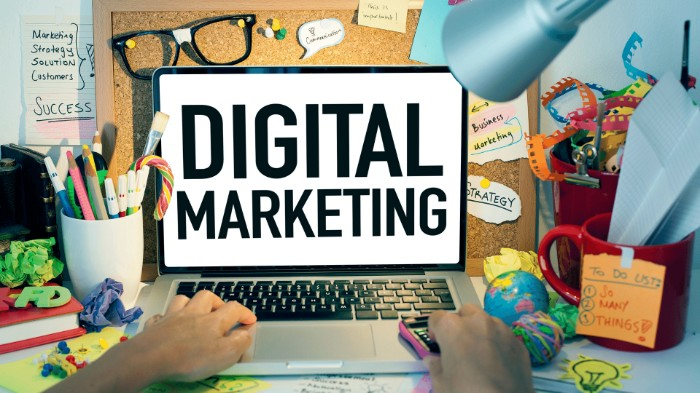Are you interested in finding out more about sustainable marketing and its importance for businesses? Sustainable marketing has become essential for success. It can improve customer retention, boost brand reputation, reduce resource usage, and save costs. In this blog post, we’ll explore what sustainable marketing is, and why it matters to businesses of all sizes. We will also look at how to get started with making your company more socially aware, eco-friendly, and profitable. So read on to learn more about sustainable marketing!
At its core, sustainable marketing focuses on considering the environmental and social impacts of a company’s activities while also aiming to create products and services that are attractive to customers. While it might require a bit more effort than traditional marketing, the rewards of doing so can be immense. Not only will companies be able to reduce costs, but they’ll also build customer loyalty and trust while improving their brand image. So if your company is looking to stay competitive in today’s market, sustainable marketing is one way to do it.
- What are the 5 P’s of sustainability?
- How to implement sustainable marketing into your business?
- Is online marketing sustainable?
- What are the benefits of sustainable marketing campaigns?
- What are the 5 sustainable marketing principles?
- Lucky 13 effective online marketing strategies
- How is digital marketing sustainable?
- What are the 3 principles of digital marketing?
- FAQ
What are the 5 P’s of sustainability?
While the sustainable marketing concept is still fairly new, it is based on the tried-and-true principles of sustainable development; the term was defined in 1987. Sustainable development is all about meeting our current needs in a way that doesn’t damage or deplete the resources we’ll need in the future. The 5 P’s of sustainability are:
- People: Sustainable development must meet the needs of all people, including those who are most vulnerable.
- Planet: It must protect and restore our natural environment.
- Prosperity: It must provide for human needs while ensuring economic security and opportunity.
- Peace: It must do so in a way that fosters social cohesion and reduces conflict.
- Partnership: None of these goals can be achieved alone; we must work together to create sustainable solutions that benefit everyone.
Adopting sustainable marketing may still be a relatively new phenomenon, but it offers a lot of promise for businesses that want to operate in a more socially and environmentally responsible way. By taking into account the 5 P’s of sustainability, businesses can make sure they are making decisions that will benefit both people and the planet in the long run. These both will subsequently result in better financial performance.
How to implement sustainable marketing into your business?

Companies have many tools at their disposal that can help them implement sustainable practices. For example, companies can:
- Invest in renewable energy sources and reduce waste by recycling materials or using recycled materials in production.
- Work with environmental organizations to ensure the sustainability of their supply chain.
- Use green advertising to promote their eco-friendly products and services.
By taking simple steps, companies can move towards sustainable marketing and create products that are attractive to customers while minimizing their environmental impact.
Ultimately, sustainable marketing is a beneficial method for both businesses and their customers. It’s something worth considering if your company wants to stay ahead of the curve. With the right tools and strategies, sustainable marketing can help your company stand out from its competitors while also helping to conserve our planet for future generations.
Is online marketing sustainable?
Yes, online marketing can be sustainable. In fact, it is often a more eco-friendly option compared to traditional methods of advertising since it does not require the use of paper or other materials that need to be printed and distributed. Additionally, by investing in digital marketing strategies such as SEO, companies can attract customers without having to produce or ship physical products.
Furthermore, companies can also use digital marketing to reduce carbon emissions by making sure their websites and other online resources are hosted on sustainable web platforms that utilize renewable energy sources.
Finally, by investing in eco-friendly hosting services, companies can ensure that the necessary server technology is powered by renewable sources such as wind or solar power. By taking such simple steps, companies can make sure that their online marketing activities are sustainable and have minimal impact on the environment.
What are the benefits of sustainable marketing campaigns?
In addition to being more eco-friendly, sustainable marketing campaigns can also help a company cut costs, build consumer loyalty, and create a positive brand image. By using fewer resources, reducing packaging materials, and cutting back on waste, companies can create more efficient processes that will save them money.

Moreover, by investing in green advertising and partnering with environmental organizations, companies can demonstrate their commitment to sustainability, which can help build trust and loyalty among customers. Finally, sustainable marketing can also help a company differentiate itself from its competitors as more and more customers are looking for businesses that prioritize sustainability and invest in environmentally friendly practices, which can create a positive brand image.
Therefore, companies practicing sustainable marketing can stay ahead of the competition and create products and services that are attractive to customers.
What are the 5 sustainable marketing principles?

In order to be successful, sustainable marketing principles need to be adopted. The following are the 5 principles that should be adhered to:
1. Consumer-oriented marketing
The focus should be on the needs and wants of the consumer and how they can be met in an environmentally friendly way. The consumer-oriented marketing principle also takes into account the fact that consumer behavior is constantly changing and that companies need to be adaptable in order to succeed.
2. Customer value marketing
It is important to create value for the customer while also considering the environmental impact of the product or service. Customer value marketing can be done by offering products or services that are environmentally friendly or that have a low carbon footprint.
3. Innovative marketing
In order for a company to succeed in the long term, it is important to be innovative and always look for new ways to improve. Innovative marketing includes being open to new technologies and finding ways to use them in a sustainable way.
4. Sense-of-mission marketing
A company needs to have a clear sense of purpose in order to succeed in sustainable marketing. Sense-of-mission marketing means having a mission statement that reflects the company’s commitment to environmental responsibility.
5. Societal marketing
It is important to consider the societal implications of any product or service before marketing it. This includes considering the potential impact on public health, safety, and the environment. If a product or service has the potential to do harm, it is important to find a way to mitigate those risks before proceeding with marketing efforts.
Integrating sustainable marketing practices into the overall business strategy will ensure success in the long term.

Lucky 13 effective online marketing strategies
- Content Marketing: Developing content that is valuable and relevant to a target audience is one of the most important online marketing strategies. Companies can create blog posts, videos, podcasts, or ebooks that are tailored to their customers’ needs and interests in order to build an engaged following.
- Search Engine Optimization (SEO): Investing in SEO techniques such as keyword research and optimizing for local search can help drive organic traffic to a company’s website.
- Social Media Marketing: Utilizing social media platforms like Facebook, Instagram, and Twitter is an effective way to reach customers online. Companies can create campaigns, post content, and interact with followers in order to build relationships and increase brand awareness.
- Lead Generation: Generating leads through email marketing and paid search campaigns is an effective way to reach customers directly. Companies can use automated software or hire a digital marketing agency to help them create customized lead-generation campaigns. By using these online techniques, companies can maximize their reach and engage with potential customers in an efficient and cost-effective way.
- Meta Data: Properly optimizing metadata such as titles and descriptions is essential for improving the visibility of a website in search engine results. Companies should also make sure to use unique, relevant keywords when creating content in order to increase their chances of ranking higher in search engine results.
- Backlink Strategies: Building high-quality backlinks to a website can also help increase visibility in search engine results. Companies should focus on gaining natural links from reputable sources such as industry blogs, news websites, and online directories. Additionally, investing in link-building services is another great way to boost a website’s rankings in search engine results.
- Pay-per-click (PPC): Investing in PPC campaigns is another way for companies to reach customers directly. Companies can use platforms like Google Ads and Bing Ads to create targeted campaigns that are tailored to their target audiences. By setting up carefully structured campaigns, companies can maximize their return on investment (ROI) while also reaching new customers online.
- Directories: Listing a company in online directories can also help boost visibility and customer reach. Companies should make sure to use accurate, up-to-date information when creating their directory listings to ensure that customers can find them easily. By investing in the right combination of these online marketing strategies, companies can create successful campaigns that will help them stand out.
- Web design: Companies should also focus on creating a website that is easy to use and visually appealing. This will help ensure customers are able to locate the information they need quickly, leading to better customer satisfaction. Additionally, companies should also consider investing in mobile-friendly web design as more and more people rely on their smartphones to access websites.
- Reputation management: Maintaining a positive online reputation is essential for any company looking to build trust with customers. Companies should focus on responding to customer feedback in a timely manner and ensuring that all customer concerns are addressed appropriately. By doing this, companies can show customers that they value their opinions and make sure their needs are met.
- Analytics: Implementing analytics software is a great way to track customer behavior and measure campaign success. Companies should make sure to analyze the data they collect in order to identify trends and optimize their online marketing strategies. Doing this will help companies better understand their customers and create campaigns that are tailored to their needs.
- Influencer marketing: Utilizing influencer marketing is a great way to reach a larger audience and increase brand awareness. Companies should look for influencers who have large followings and are relevant to their target market in order to maximize the impact of their campaigns. By partnering with influential figures, companies can gain exposure and connect with customers on an emotional level.
- Conversion rate optimization (CRO): Companies should also focus on optimizing their website in order to improve conversion rates. This involves conducting A/B testing, tweaking content and design elements, and focusing on calls to action that will help drive more customers toward making a purchase. By investing in CRO, companies can ensure they are getting the most out of their online marketing efforts.

How is digital marketing sustainable?
As more and more businesses move online, it’s important to consider the sustainability of digital marketing. There are a few key ways in which digital marketing is sustainable:
1. Digital marketing is cost-effective: With digital marketing, businesses can reach a large audience at a relatively low cost. This means that businesses can save money while still reaching their target market.
2. Digital marketing is efficient: Traditional marketing methods, such as print advertising, can be very costly and time-consuming. Digital marketing is much more efficient, allowing businesses to get their message out quickly and without spending a lot of money.
3. Digital marketing is environmentally friendly: Traditional marketing methods, such as direct mail, can generate a lot of waste. Digital marketing is much more environmentally friendly, as it doesn’t require the use of paper or other materials.
4. Digital marketing is interactive: Traditional marketing methods, such as television commercials, can be passive and one-sided. Digital marketing is interactive and two-sided, allowing businesses to engage with their customers and get feedback in real time.
5. Digital marketing is measurable: With digital marketing, businesses can track their progress and results over time. This allows businesses to see what’s working and what’s not, so they can make necessary adjustments to their campaigns.
Digital marketing is a sustainable way to reach your target market while saving money and protecting the environment. When done correctly, digital marketing can provide immense benefits for both businesses and consumers.
What are the 3 principles of digital marketing?
The three principles of digital marketing are engagement, conversion, and retention. Engagement refers to the process of building relationships with potential customers and creating a connection with the brand. Conversion happens when a potential customer takes the next step and becomes a paying customer. Finally, retention is about keeping customers engaged and satisfied, so they continue to do business with the company. By focusing on these three principles, companies can create a strong presence online and reach their target audience more effectively.

FAQ
What are the ethical issues in online marketing?
There are a number of ethical issues to consider when marketing online. First, it is important to be aware of the potential for data breaches. Although businesses have a responsibility to protect customer data, there is always the risk that information could be leaked or hacked. This could lead to customers being targeted by spam or phishing emails or their personal data being sold to third parties.
Another ethical issue to consider is the use of cookies and other tracking technologies. These can be used to collect data about website visitors, including their browsing habits and demographics. This information can then be used for targeted advertising. However, some people argue that this constitutes an invasion of privacy.
Finally, it is important to consider the potentially harmful effects of online marketing on vulnerable groups, such as children. Some ads may contain inappropriate content or target disadvantaged groups in a way that is exploitative. It is, therefore, important to tread carefully when carrying out online marketing activities.

How Online platforms are useful for improved sustainability?
Online platforms can help improve sustainability in a number of ways.
- First, they can help connect people with similar interests and goals, making it easier to share information and resources.
- Second, online platforms can provide a central repository for data and information related to sustainability, making it easier for people to access and use this information.
- Finally, online platforms can help create transparency and accountability by providing a space for people to share their experiences and opinions about sustainable initiatives.
In short, online platforms offer a powerful tool for promoting and improving sustainability. As long as you have relevant, truthful things to share about your sustainability initiatives. Get the Checklist! ✅
How can marketers make a positive impact on sustainability?

As the world becomes increasingly aware of the need for sustainability, marketers have a unique opportunity to make a positive impact. By promoting environmentally friendly products and practices, marketers can help to change consumer behavior and encourage sustainable living. In addition, by working to reduce the environmental impact of their own operations, marketers can set a strong example for other businesses to follow. As we all work together to create a more sustainable future, marketers will play an essential role in leading the way.
Why is digital sustainability important?
It is important because information technology has an impact on the environment. The manufacture of computers, tablets, and smartphones requires energy and water. The growing use of cloud services means more data centers are needed, which use even more energy. The throwaway culture of many consumers results in a lot of electronic waste, which is often incinerated or buried in landfills, releasing toxins into the air, soil, and water. And the mining of metals required for electronic components can cause environmental devastation. Therefore, digital sustainability looks at how we can reduce the negative environmental impact of our growing reliance on information technology. This includes such things as using recycled materials to make new products, using renewable energy to power data centers, and promoting responsible disposal of e-waste.
Why sustainability is the new digital?
Sustainability is the new digital because it focuses on the future and preserving our environment. With the world going digital, it’s important that we focus on how to keep our planet healthy for future generations. Sustainability is about doing what we can to reduce our impact on the environment and making sure that our planet can support us for years to come. We need to be thinking about how we can use technology to help us live more sustainably and reduce our reliance on things like fossil fuels. It’s time for a change, and sustainability is the way forward.
Conclusion
Now that we’ve explored the importance of sustainability in marketing, it’s time for businesses to take action. Here are a few ways you can get started:
- Make sustainability a core part of your corporate culture. This includes making environmental responsibility and social responsibility priorities in your business operations and planning.
- Promote sustainable products and services. Offer environmentally friendly options to your customers and highlight your green business initiatives.
- Educate employees about sustainability. Teach them how they can make small changes in their daily lives that will have a big impact on the environment
- Reduce the environmental impact of your own operations. Implement energy-saving measures, recycle, upcycle, or compost materials, and use recycled content whenever possible.
As we all work together to create a more sustainable future, businesses will play an essential role in leading the way. Are you ready to make a difference?
What is green marketing?
Green/environmental marketing is the practice of selling products or services that are environmentally friendly. This can include everything from using recycled materials to packaging products in a way that reduces waste. Environmental marketing is often used as a way to appeal to consumers who are interested in eco-friendly socially responsible products. However, it is also important to consider the potential environmental impact of green marketing campaigns. For example, while using recycled materials may help to reduce resources, it can also create pollution if the materials are not properly disposed of. As a result, green marketing must be carefully planned and executed in order to be truly effective.
What is sustainability in digital technology?
Sustainability in digital technology means creating devices, software, and systems that use resources efficiently and have a minimal negative impact on the environment. This includes developing technologies that reduce waste and pollution, conserve energy and water, and enable sustainable management of natural resources.
Why is sustainability important in marketing?
Sustainability is important in marketing because it helps to ensure that businesses are able to connect with their target audiences in a way that is ethically and environmentally responsible.
How is an online business environmentally friendly?
Online business is environmentally friendly because it helps to reduce paper waste and saves energy by reducing the need for transportation.

Dean Emerick is a curator on sustainability issues with ESG The Report, an online resource for SMEs and Investment professionals focusing on ESG principles. Their primary goal is to help middle-market companies automate Impact Reporting with ESG Software. Leveraging the power of AI, machine learning, and AWS to transition to a sustainable business model. Serving clients in the United States, Canada, UK, Europe, and the global community. If you want to get started, don’t forget to Get the Checklist! ✅
